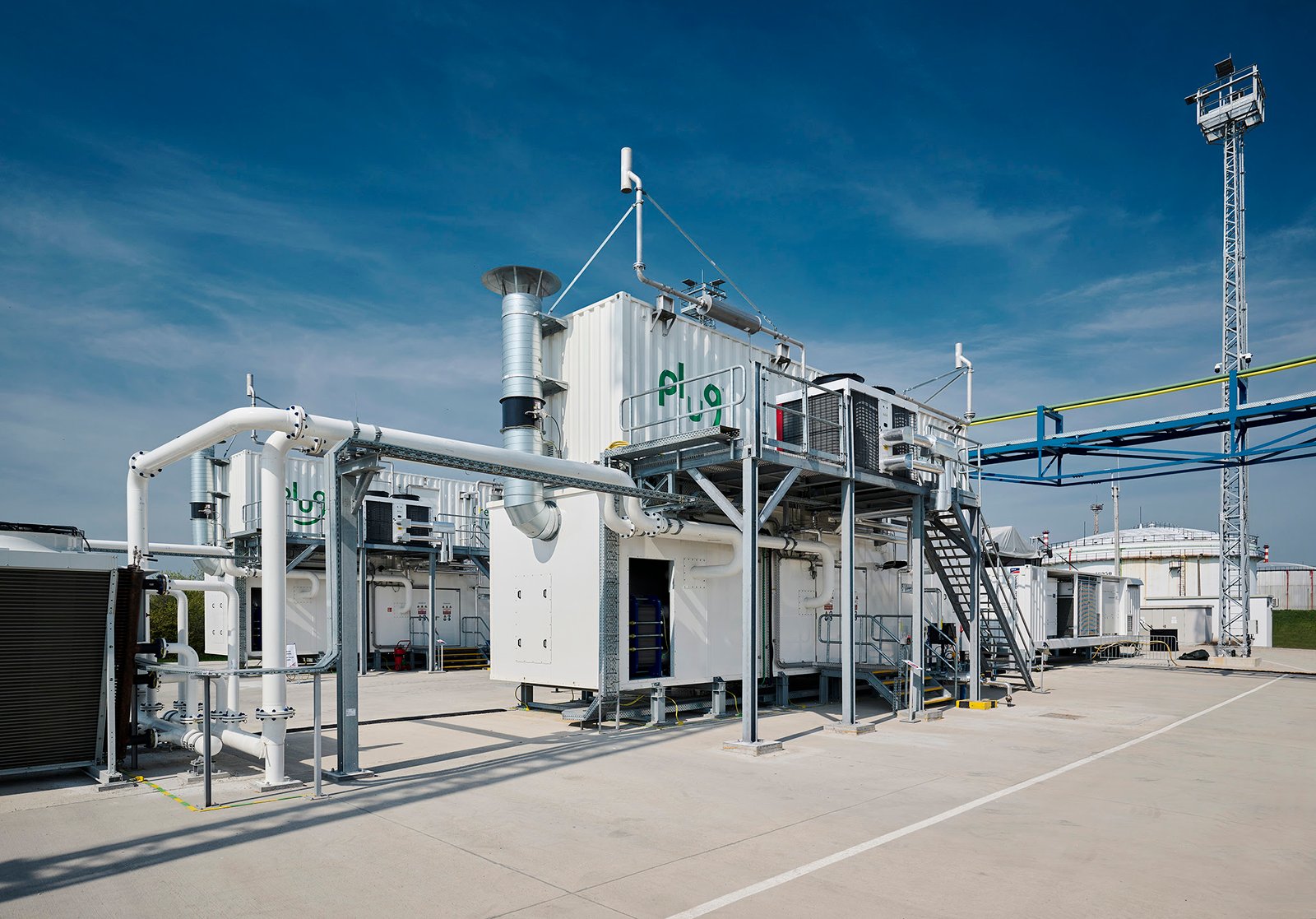
Százhalombatta, Hungary, April 15, 2024 (PR) - MOL Group has handed over a 10 megawatt capacity green hydrogen plant in Százhalombatta which is the largest in Central and Eastern Europe. The €22 million investment makes fuel production more sustainable: the plant will reduce the Danube Refinery's carbon dioxide emissions by 25 000 tonnes. MOL will be able to produce 1,600 tonnes of clean, carbon-neutral green hydrogen per year which opens a new chapter in hydrogen economy. The investment is in line with the MOL Group's SHAPE TOMORROW corporate strategy to make the region more sustainable, competitive and self-sufficient.
MOL Group’s goal is to provide the solutions for tomorrow: the green hydrogen plant in Százhalombatta, with a 10 megawatt electrolysis unit created by Plug Power produces around 1,600 tonnes of clean, carbon-neutral green hydrogen per year. The €22 million investment will reduce the carbon footprint of the Danube Refinery by more than 25,000 tonnes of carbon dioxide per year. The new technology will gradually replace the natural gas-based production process, which currently accounts for one sixth of the MOL Group's total carbon dioxide emissions. The plant will start producing in the second half of 2024: MOL will use the green hydrogen primarily in its own network for fuel production.

Plug Power's electrolysis equipment uses electricity from renewable sources to break down water into hydrogen and oxygen. This means that no polluting by-products are generated and, in fact, the plant produces 8-9 tonnes of pure oxygen per tonne of hydrogen. The US company has offered MOL an innovative and reliable technology: the hydrogen generators, optimized for the production of pure hydrogen, have almost 50 years of operational experience.
"MOL Group has reached another milestone: we can now produce green hydrogen without producing any greenhouse gases. Using this technology, we are able to achieve the same emissions reduction as if we took roughly 5,500 cars off the road overnight. Today, our new green hydrogen plant is only making MOL's industrial operations greener, but tomorrow it will offer solutions for the whole industry and hydrogen mobility. After Száhalombatta, we will take the technology to the other two fuel production units of the group to make the fuel production process more sustainable at each of MOL Group's refineries" said József Molnár, CEO of MOL Group, at the inauguration ceremony of the new green hydrogen plant.
The investment is in line with the MOL Group's SHAPE TOMORROW corporate strategy which aims to make the region more sustainable, competitive and self-sufficient.
“We are thrilled to celebrate, in partnership with MOL, the inauguration of one of Europe's largest green hydrogen plants supporting a refinery," stated Plug CEO Andy Marsh. "As a potent way to reduce carbon emissions within refinery operations, we are proud to equip MOL with cutting-edge electrolyzer technology to efficiently produce green hydrogen. Together, we are advancing towards carbon neutrality, fostering greener operations, and propelling the hydrogen economy forward."
About MOL Group
MOL Group is an international, integrated oil, gas, petrochemicals and consumer retail company, headquartered in Budapest, Hungary. It is active in over 30 countries with a dynamic international workforce of 25,000 people and a track record of more than 100 years. MOL Group operates three refineries and two petrochemicals plants under integrated supply chain-management in Hungary, Slovakia and Croatia, and owns a network of almost 2400 service stations across 10 countries in Central & South Eastern Europe. MOL’s exploration and production activities are supported by more than 85 years’ experience in the field of hydrocarbons and 30 years in the injection of CO2. At the moment, there are production activities in 9 countries and exploration assets in 14 countries.
MOL is committed to transform its traditional fossil-fuel-based operations into a low-carbon, sustainable business model and aspires to become net carbon neutral by 2050 while shaping the low-carbon circular economy in Central-and Eastern Europe.



